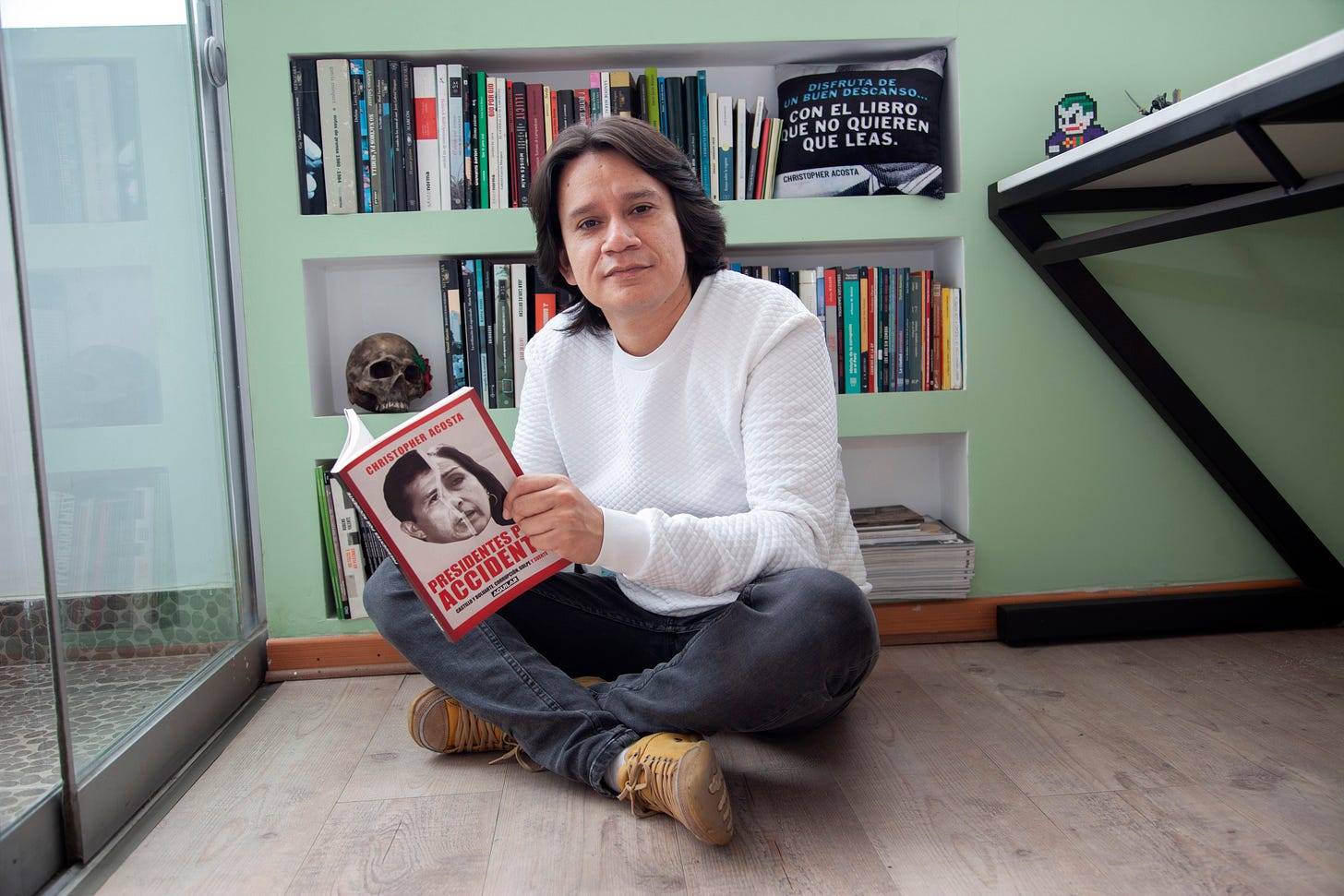Dissident Spotlight: Christopher Alfaro
Christopher Alfaro wrote a book describing how a politician illegally made his fortune. Alfaro was sentenced to two years in prison for publishing it.

In 2021, Peruvian journalist Christopher Acosta Alfaro published a book called Plata Como Cancha — Cash by the Bucket in English. It was a profile of the ill-gotten wealth of Peruvian politician, César Acuña.
At the national level, Acuña was an unsuccessful politician. His 2016 presidential bid failed and despite early hype for the 2021 race, he only got 6% of the popular vote.
However, he was good at siphoning money from his position. One of the quotes that Alfaro included in his book concerned the method Acuña used to disguise illegal campaign contributions. Acuña would send money to intermediate accounts, then accept payments from what looked like regular people, including personal drivers he would bully into relinquishing their bank information:
“According to the driver, he was not the only one who was used in this way. He revealed that there were about ten people, including workers…who were coerced into providing their accounts in order to receive sums of money that were intended to finance this campaign.”
Acuña sued Alfaro and his publisher, and a judge examined 55 quotes, including the one above, to see whether they constituted defamation. In January 2022, the judge ruled that many of them did. Consequently, Alfaro faced a two-year prison sentence and a $100,000 fine.
Weakness of Corrupt Officials
In some ways, Alfaro was lucky. His two-year prison sentence was deferred a year, so he had time to appeal. In July 2022, Acuña withdrew his case against Alfaro and his publisher. The immediate threat to Alfaro’s freedom was over.
But in Peru, the threat remains. Lawsuits like Acuña’s routinely silence journalists by imprisoning or bankrupting those who report unflattering details about powerful people and intimidating those who see the consequences of speaking ugly truths to power.
The United States has its own version of these types of silencing lawsuits. Strategic Lawsuits Against Public Participation (SLAPP) bring cases against people who speak out about public issues and prevent them from continuing to criticize people or companies in public while the case is active.
After historian James Gregory published inaccuracies in Pennsylvania State Senator Doug Mastriano’s research, Mastriano sued him for defamation and tried to get racketeering charges to stick.
This is a real case from May 2024. Some states prohibit frivolous lawsuits used to silence critics, but wealthy individuals can still sue in states that allow them. Instead of throwing the case out, the Oklahoma District Court allowed Mastriano to amend his complaint, leaving a professor with legal bills and a looming court case instead of the freedom to criticize someone with more political power than him.
Political leaders like these tend to be more brittle than their bluster makes them look. They’re often happy to challenge people weaker than them. But in a fair court system, they can also reveal the weaknesses that made them stoop to fraud and intimidation in the first place.

